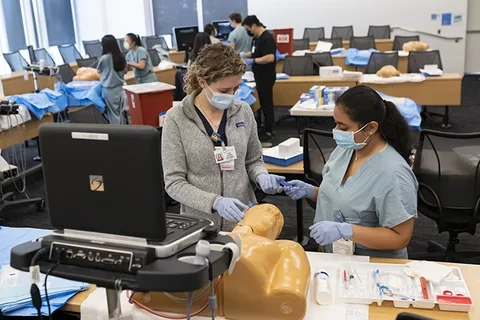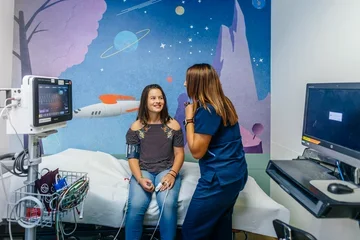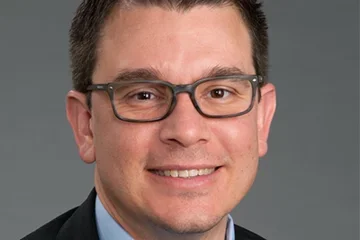Preparing for Medical School Applications
What Do You Need to Know?

A Day in the Life of Theodore Hall, MD, Associate Dean for Admissions
Preparing for medical school has never been easy, but the intensity of the process seems to have increased in recent years as medical schools place greater emphasis on selecting well-rounded students.
Theodore R. Hall, MD, associate dean for admissions at the David Geffen School of Medicine at UCLA, wants medical school applicants to take the long view and see themselves through the eyes of admissions committees—instead of just comparing themselves to the small subset of applicants they know personally.
Here, Dr. Hall offers five tips to help you prepare a strong medical school application.
1. Look Beyond the Basics

It goes without saying that someone interested in medical school should have good grades and strong preparation in the sciences. However, the sciences alone are not enough.
"We don't tell people what subject to major in, but we do want applicants to pursue a broad education in the humanities as well as the sciences," Dr. Hall says. "And psychology and sociology are helpful, not only because they are now included on the MCAT, but they also inform you how to work with people whose backgrounds may be different from your own."
2. Explore Association of American Medical Colleges (AAMC) Resources
There are many books out there to help you prepare for the MCAT and strengthen your application, but Dr. Hall suggests getting the inside scoop on medical schools by going to the real authority, the Association of American Medical Colleges.
In particular, he notes that the AAMC has created Navigate Your Journey, a website devoted to helping students from pre-med through residency. He also favors the AAMC's online resource Medical School Admissions Requirements, a searchable database including admissions requirements, matriculant profiles and financial aid information.
3. Consider How Medical Schools Regard Clinical Experience
It has become the conventional wisdom that students preparing for medical school should obtain as much clinical experience as possible and that any experience is good experience. Dr. Hall says the new truth is more nuanced.
Even as medical schools place greater emphasis on clinical experiences, they are becoming more difficult to obtain. "Our medical center has cut down on shadowing opportunities for those who are not part of a formal program here due to HIPAA and security issues," Dr. Hall says. "That means students have to be a bit more creative about what they're going to do to get that experience."
Working as a medical scribe and, of course, performing medical research are two great ways to get this experience. Dr. Hall, who also suggests working as an emergency medical technician (EMT), or certified nursing assistant or certified medical assistant, notes that the quality of the experience is more important than the number of hours.
He sounds a cautionary note about going abroad to seek clinical experiences. "Within the medical admissions community, there is increasing concern about applicants performing unsupervised invasive procedures overseas, like giving vaccinations, suturing injuries or delivering babies," he says.
"Students naively think if they can get these experiences, admissions committees will think it's very positive. But we don't want them doing things blindly out in the field. Students should know if they engage in these activities and then discuss them on their applications, they can be harming their applications."
4. Keep a Diary to Help You Prepare Your Personal Statement
When it comes to the actual application, take some time to develop your personal statement, which, Dr. Hall says, "acts as a composite of who you are and the road you traveled to get from point A to point B."
His suggestion? Keep a simple diary of your intellectual experiences during your undergraduate years. "Jot down a couple of lines about what you felt and experienced during the day in your classes and any contacts with healthcare professionals," he says. "When it comes time to put together your applications, you'll be better able to recall the nuances and write about them clearly in your personal statement. This ties in with our goal in medical education to have each student do more reflective writing."
5. Know Each Medical School's Priorities
Finally, Dr. Hall suggests assessing how well your career goals and interests mesh with the priorities of your top-choice medical schools. He notes that some schools focus more on patient care, while others emphasize research, too. According to Dr. Hall, UCLA looks at research and community service equally when evaluating applicants. "We're all scientists here. And we all need to know how the scientific method impacts our clinical practice on a daily level," he says. "That means you need to give serious thought to the research you do as an undergraduate and how you present it to us."
Follow these five tips to increase your chance of a successful application.
(Related Article: How to Prepare for Medical School)



